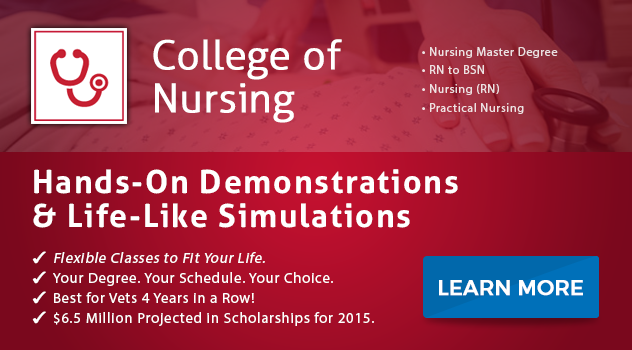Do I Have What it Takes to be a Nurse? How Do I Know?
If you have a strong desire to help others and work in a team-oriented field, you should consider a nursing degree. The nursing field offers both students and nurses the opportunity to make a positive difference in the lives of those who need it most. You could be caring for the sick and injured, saving lives with your hands ... and your heart. Because of the nature of this work, passion is a requirement, and most who enjoy nursing describe it as their calling.
How do you know if Nursing is your Calling?
Have you asked yourself “is nursing for me?” or have people told you that you would make a good nurse? To become a nurse, you must go through a significant amount of training. Before you decide to commit yourself to nursing school, it’s important that you know for sure that nursing is your calling.
Ask yourself these five questions before you take your first class:
Why do I want to be a nurse?
Nursing is a very demanding field. The mental, emotional, and physical requirements can be overwhelming. Successful nurses have a passion for caring and helping people. If you aren’t sure about why you want to be a nurse, you can first work as a volunteer and to get an idea of what nurses do.
Am I a people person?
Nurses have to work with patients who sometimes are in pain, sick, afraid, or even dying. While this can be difficult, nurses should be able to work with their patients, their loved ones, and the hospital staff. This means you need to know how to negotiate each group.
What do nurses do?
Before you commit yourself to the rigorous life of a nurse, it’s advisable that you first work as a volunteer in a healthcare facility where you can interact with and observe other nurses. This will help you determine if nursing is your calling, or whether you should consider other options.
Do I pay attention to detail?
Nurses have to pay attention even to the tiniest details. Both patients and doctors rely on them to give the correct treatments and medicines at the right time. This means that you will have to always double-check details and be as careful as possible.
Am I ready to become a life-long learner?
Completing your degree and earning your license doesn’t mean the end of learning for nurses. Nurses should maintain their education and continue to acquire other skills. Healthcare is a dynamic profession, and nurses should be at the forefront of reading new research, acquiring new skills and presenting them to their patients.
Which Skills Do You Need to Become a Nurse?
Patients rely on nurses to treat their emotional, mental, and physical needs on a daily basis. Therefore, a future in nursing requires you to have several skills such as:
Critical thinking: During your shift, you may be called upon to solve different types of problems. Defining problems, identifying goals, taking action, and evaluating solutions are steps that can be learned and applied to all types of problems that require critical thinking. Self-confidence, reflectiveness, and inquisitiveness are among some of the ways that you can enhance your critical-thinking skills.
Interpersonal abilities: Nurses work as a link between patients and medical specialists, and this means your interpersonal skills are important. According to research, creating trust and rapport between patients and the healthcare team aids the healing process. Nurses have to provide patients with education about their health conditions and translate the results. Patients appreciate nurses with strong listening skills and that try to get to know their patients. While nursing training will equip you with these abilities, you need some personal qualities that can enhance your interpersonal skills, for instance, being caring and emotionally mature.
Technical skills: These skills involve competence in using technology to demonstrate basic patient care. During your nurse training, you will learn how to perform some medical tasks such as positioning the patient on hospital beds, applying bandages, administering medicine intravenously, and helping patients in their day to day activities. Some of the personal qualities that will benefit you include being detail-oriented and responsible.
How can Formal Training Help You Become a Nurse?
To become a registered nurse, you need to complete an associate or bachelor’s degree in nursing. Graduates of associate degree programs can then apply to take the NCLEX-RN (National Council Licensure Examination for RN licensure).
Take the First Step
Are you interested in a nursing degree? If you want to earn an Associate of Applied Science Degree in Nursing, ECPI University offers this degree program at an accelerated course of study. For more information about how to enroll today, connect with a friendly admissions representative.
It could be the Best Decision You Ever Make!
DISCLAIMER – ECPI University makes no claim, warranty, or guarantee as to actual employability or earning potential to current, past or future students or graduates of any educational program we offer. The ECPI University website is published for informational purposes only. Every effort is made to ensure the accuracy of information contained on the ECPI.edu domain; however, no warranty of accuracy is made. No contractual rights, either expressed or implied, are created by its content.
For more information about ECPI University or any of our programs click here: http://www.ecpi.edu/ or http://ow.ly/Ca1ya.





